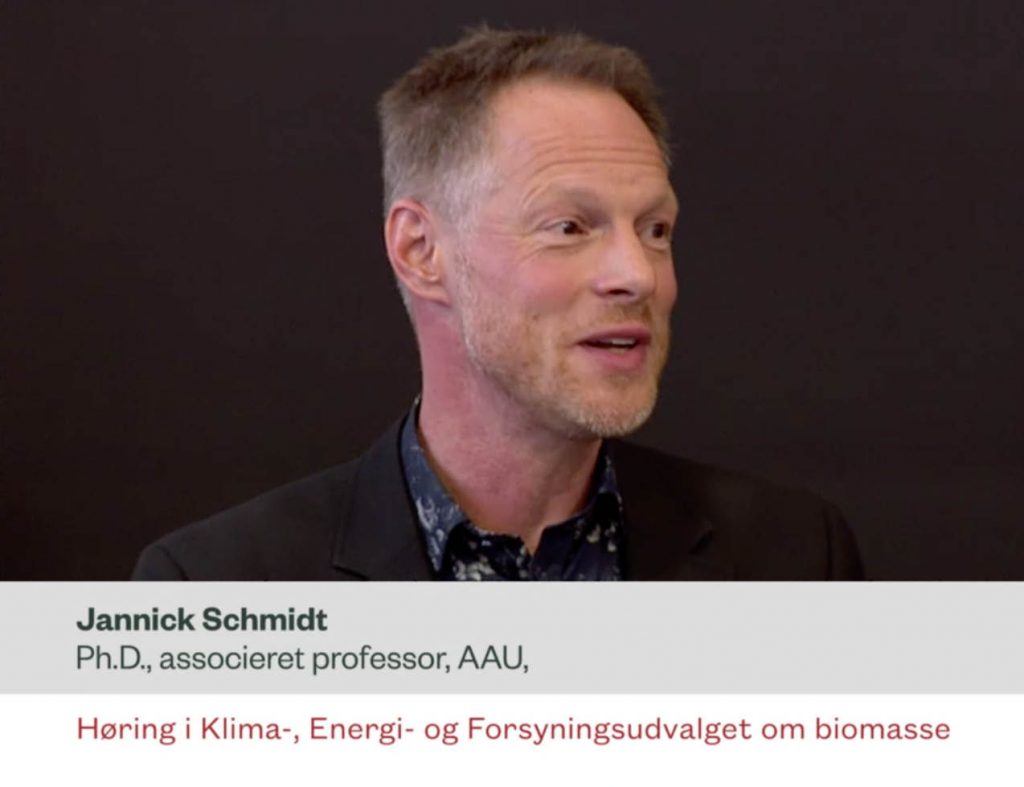Politicians listen: Biomass is not CO2-neutral
February 18, 2020 by admin
A government hearing on biomass in the Danish Parliament has being going around social media lately, not so much because of the content, but because American star-journalist Michael Grunwald tweeted about the sober way the politicians behaved during the hearing: “I couldn’t tell which pols were in which party or what biases any of them had about the topic being discussed. It really seemed like they were there to learn. And by the end it was clear they had.”
We are proud to say that our CEO, Jannick Scmidt was an invited expert witness at the hearing, alongside foreign expert witnesses such as Searchinger. In his allotted 10 minutes, Jannick managed to clarify the intricacies of direct and indirect land use consequences as well as the overall climate consequences of burning biomass for energy. The take-home-message to the politicians were: If you ask if biomass is climate neutral, then a resounding ‘no’ is the only possible answer.
Then, Jannick explained why: When you burn forest biomass you release CO2. The re-growth of the forest takes time, so the uptake of CO2 from the air happens over a long time compared to the instantaneous release when burning. This difference in timing of the release and uptake of CO2 is important because less CO2-emissions are needed now, while a reduction in CO2 has less importance if it happens later. Secondly, if the biomass is grown in biomass plantations, then the land cannot be used for food production, and this will in the end lead to expansion into nature as well as increased fertilizer use on other land. This mechanism is called indirect land use change (iLUC). Globally, according to IPCC, CO2 from deforestation contributes with around 11% of the global greenhouse gas emissions. Finally, even if biomass is harvested without affecting the cultivated land, for example, when tree tops, smaller branches, and forest debris are removed as part of a forestry operation and used as fuel, this leads to CO2-emissions now, instead of the slower decomposition on the forest floor with a more gradual CO2 release. So when the politicians decide to allow burning of forest residues, this leads to CO2 emissions and subsequent environmental impact right now, on their watch.
We can only hope that Michael Grunwald is right that the politicians listened. At least the message is clear.
Links:
The meeting (in Danish) is recorded and can be found via this link, as can the Danish abstract
Michael Grunwalds tweet about the Danish hearing on Threadreader
